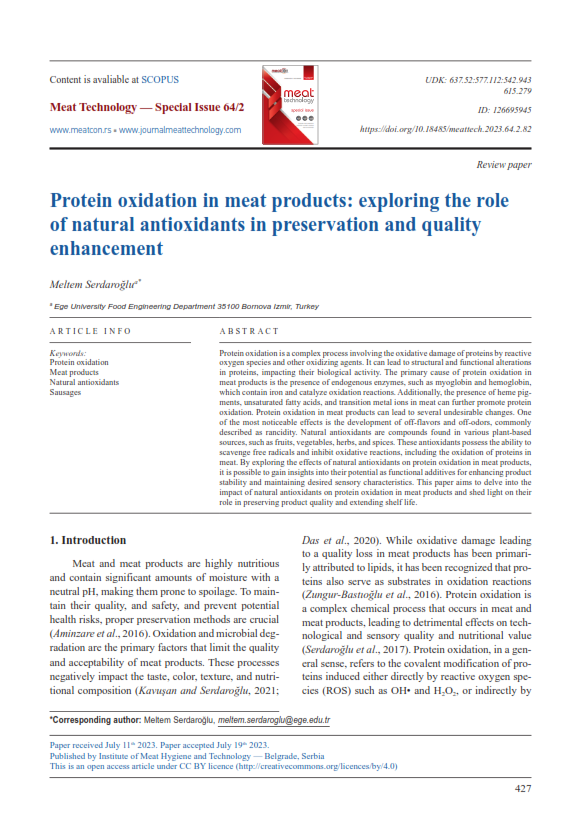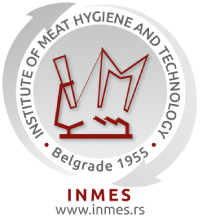Protein Oxidation in Meat Products: Exploring the Role of Natural Antioxidants in Preservation and Quality Enhancement
Abstract
Protein oxidation is a complex process involving the oxidative damage of proteins by reactive oxygen species and other oxidizing agents. It can lead to structural and functional alterations in proteins, impacting their biological activity. The primary cause of protein oxidation in meat products is the presence of endogenous enzymes, such as myoglobin and hemoglobin, which contain iron and catalyze oxidation reactions. Additionally, the presence of heme pigments, unsaturated fatty acids, and transition metal ions in meat can further promote protein oxidation. Protein oxidation in meat products can lead to several undesirable changes. One of the most noticeable effects is the development of off-flavors and off-odors, commonly described as rancidity. Natural antioxidants are compounds found in various plant-based sources, such as fruits, vegetables, herbs, and spices. These antioxidants possess the ability to scavenge free radicals and inhibit oxidative reactions, including the oxidation of proteins in meat. By exploring the effects of natural antioxidants on protein oxidation in meat products, it is possible to gain insights into their potential as functional additives for enhancing product stability and maintaining desired sensory characteristics. This paper aims to delve into the impact of natural antioxidants on protein oxidation in meat products and shed light on their role in preserving product quality and extending shelf life.





